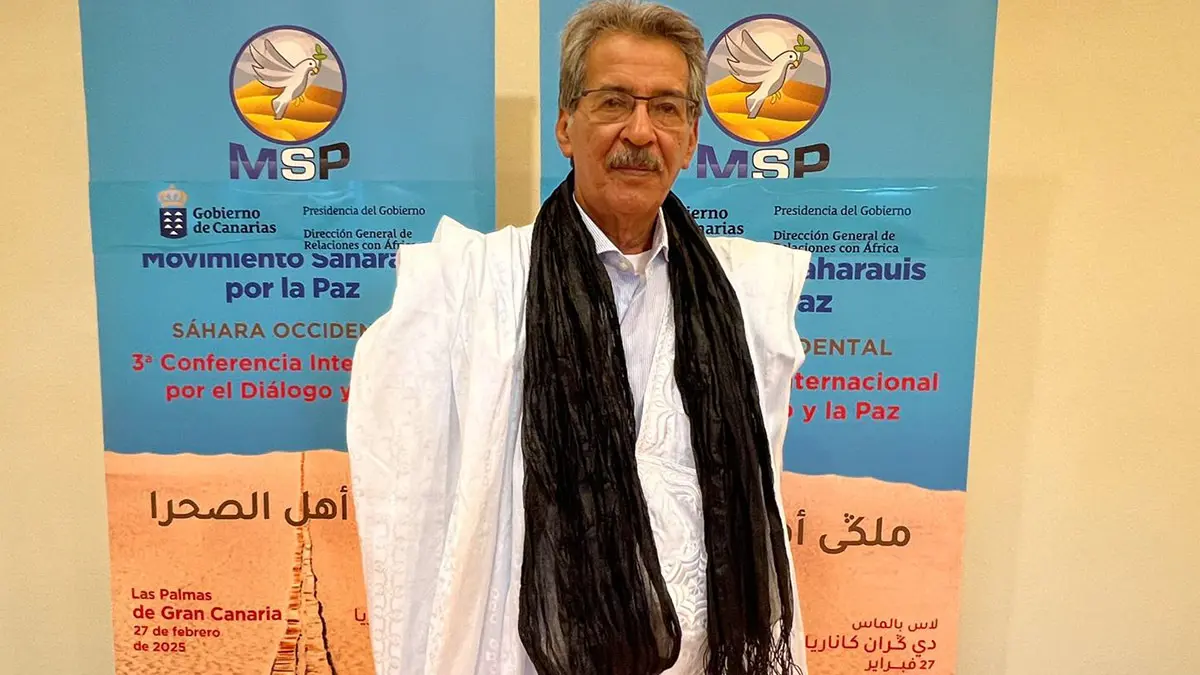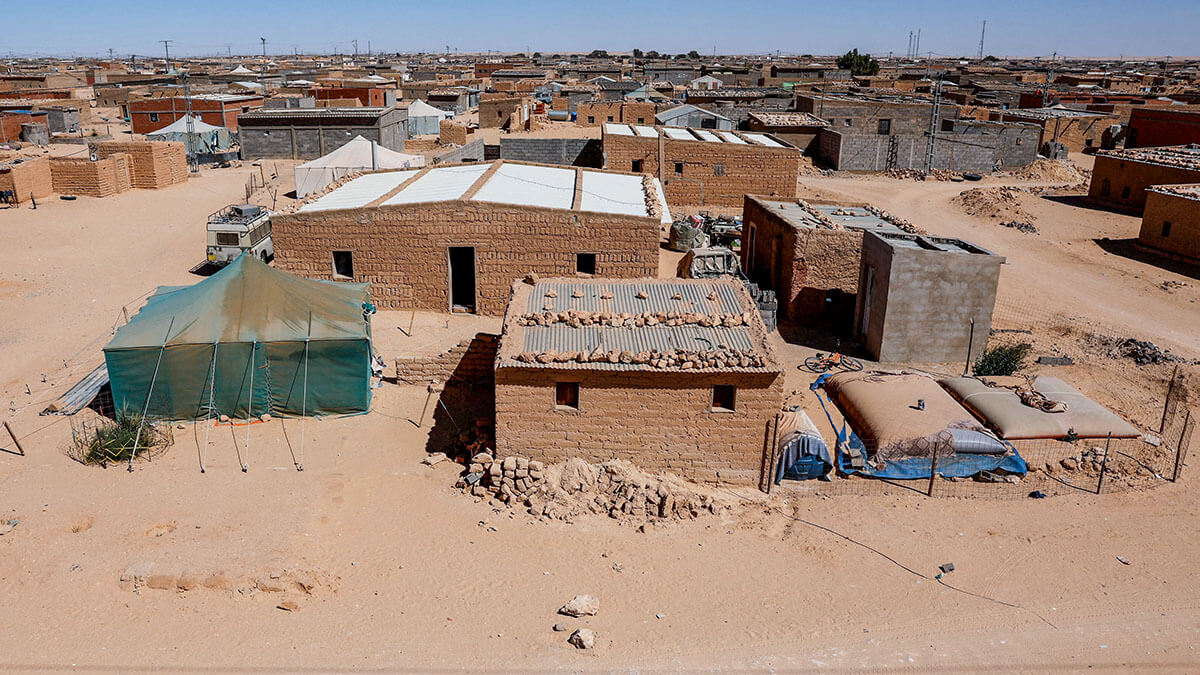Hach Ahmed: ‘Algeria must listen to the voices of the Saharawi people’

In an interview with the newspaper Madar 21, the first secretary of the Movement Saharawi for Peace, Hach Ahmed Bericalla, reviewed the current situation of the Western Sahara conflict, his communications with Staffan De Mistura, the special envoy of the United Nations Secretary-General for Western Sahara, the role of Algeria and the Polisario Front, and how a firm acceptance of the Moroccan Autonomy Plan for the region promoted by the King of Morocco, Mohammed VI, in 2007, could be the definitive solution that not only provides peace and stability, but also brings short-, medium- and long-term benefits to the region, Morocco and Algeria.
Among the various issues, Hach Ahmed Bericalla insisted that Algeria must change its position on the Western Sahara question. 'It is difficult to assess Algeria's current position and to what extent it would be willing to facilitate a political solution. However, I am sure that the Algerian authorities are aware of the extreme weakness of the Polisario, not only on the military and diplomatic fronts, but also due to the crisis of confidence,' he said.

During the hearing, Hach Ahmed emphasised the importance of the letters he has exchanged with De Mistura, which seek only a solution that supports the ceasefire in the region and thus avoids the loss of human lives. ‘We are a movement that, since its creation in 2020, has been committed to the peaceful path and believes in dialogue to resolve conflicts and disputes.’ However, the first secretary also mentioned that MINURSO's role must be more effective in order to achieve the objectives for which it was created.
On the other hand, Hach Ahmed mentioned that one of the possible solutions that De Mistura should have considered is to have expanded the dialogue tables and included more affected actors in a political process that has been going on for more than five decades.

‘One of the main problems is that, at this stage, for various reasons and motives, not all Sahrawis identify with the radical positions of the Polisario and its political project,’ said the first secretary of the MSP, referring to the consequences of this lack of dialogue and demands on the parties involved to establish contacts that benefit the people living in the region, who are the most affected.
As a result, according to the first secretary, tribal leaders, who carry considerable weight in society, have begun to warn of the need for a ‘third way’: the Movement Saharawi for Peace. This is mainly due to the alliance with ‘dialogue and the rejection of armed struggle’ established by the MSP, Sahrawi tribal leaders and the Kingdom of Morocco. This third way is supported by American politicians such as former Pentagon adviser Michael Urbin, who, among other things, urged the Donald Trump administration to recommend ‘to the UN Secretary-General that the MSP be included in the future round table and in the political process led by De Mistura’.

After reviewing the history of the organisation's emergence and how this has been possible, Hach Ahmed Bericalla explained that the solution to the conflict through the creation of a Sahrawi Arab Democratic Republic (SADR) is unfeasible. ‘Today, most Sahrawis are no longer attracted by the failed Polisario project, not even the promised 'SADR' in which we believed and fought for decades. Common sense and bitter experience suggest that it is time to disassociate ourselves from utopian projects and open a path of understanding and coexistence with the Kingdom of Morocco,’ he said.
He added: ‘If De Mistura had processed this information and included these facts and realities in his good offices mission, he would have fared better and would not be counting down the days left as Envoy for Western Sahara.’
Finally, Hach Ahmed stressed that the military option is impossible. ‘That is why we believe that the autonomy proposal offered by Morocco in 2007 is a good starting point for a political settlement without winners or losers. On this basis, we have drawn up a draft Special Statute for the Sahara that is ready to be put on the table,’ he said.








